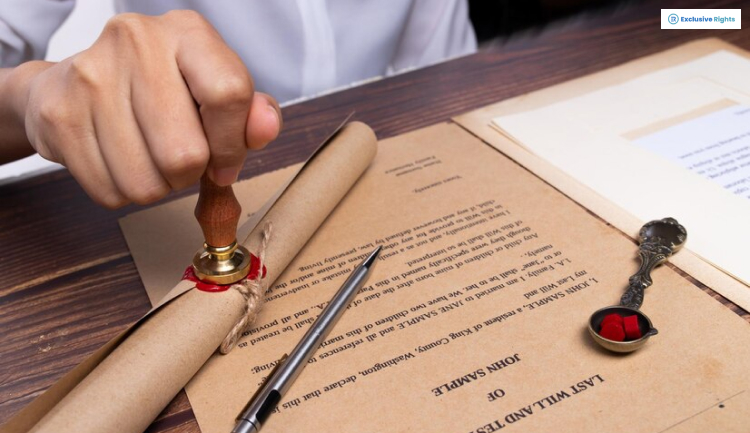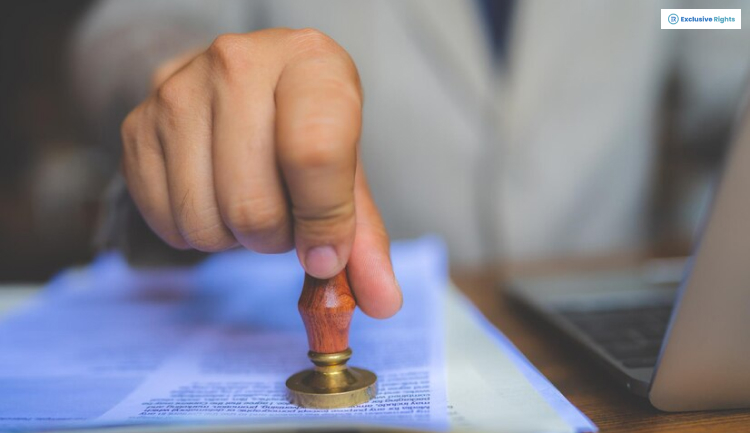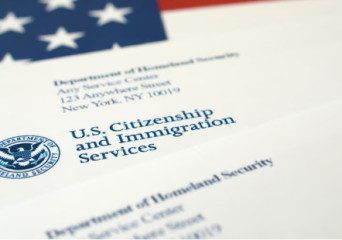
Table Of Contents
- History of Apostille
- Purpose of Apostille
- When Do You Need an Apostille?
- Documents That Require to Get Apostilled
- How to Obtain an Apostille?
- Difference between Apostille and Authentication
- Apostille
- Authentication
- Are Apostille and Authentication Interchangeable?
- Common Misconceptions about Apostille
- Benefits of Using Apostille
- Primary Roles of Apostille
- Streamlining International Document Verification
- Ensuring Document Authenticity and Integrity
- Simplifying Personal and Family Matters
- Final Thoughts
What is an Apostille? When Do You Need an Apostille?
An apostille is a vital certification that confirms the legitimacy of papers for international usage. In today’s connected world, when cross-border transactions and legal processes are widespread, knowing the importance of an apostille is critical. Essentially, an apostille is a sign of approval confirming that a document produced in one nation is legal in another without additional verification.
The apostille method, which originated with the Hague Convention of 1961, reduces the complexity of legalizing papers for international usage. It removes the need for extensive authentication procedures, making international transactions faster and easier.
Apostille certification asks for various papers, marriage licenses, birth certificates, diplomas, and commercial contracts. Understanding how to acquire an apostille is critical whether you intend to study abroad, do business overseas, or immigrate to another country.
In this blog, we’ll go further into the nuances of apostille certification, including its history, purpose, application procedure, and frequent misunderstandings. In the end, you’ll have a solid knowledge of why apostille authentication and its vitality in today’s world.
History of Apostille
The Apostille exists since the mid-twentieth century, when the Hague Convention was established in 1961. The agreement sought to streamline certifying foreign papers for use in member nations. Before the convention, determining the validity of documents across borders was a time-consuming and difficult operation that frequently required many levels of official validation.
The idea for the Apostille stemmed from the desire to speed up international document verification procedures.
On October 5, 1961, representatives from various countries gathered in The Hague, Netherlands, to sign the Apostille Convention. This landmark treaty established the legal framework for apostille certification, outlining the specific procedures and requirements for validating documents for international use.
The Apostille Convention introduced a revolutionary concept: a single authentication stamp that would suffice for all member countries, eliminating the need for additional certifications from diplomatic or consular authorities. This simplified process significantly reduced the bureaucratic hurdles associated with cross-border document legalization.
On October 5, 1961, delegates from many nations met in The Hague, Netherlands, to sign the Apostille Convention. This historic convention created the legal basis for apostille certification, laying out the exact procedures and conditions for verifying papers for international usage.
The Apostille Convention pioneered a novel idea: a single authentication stamp sufficient for all member nations, removing the need for further certifications from diplomatic or consular authorities. This streamlined procedure considerably decreased the administrative burdens connected with cross-border document legalization.
Purpose of Apostille

Apostille eases the authentication of documents for international usage. It is a worldwide recognized certification confirming the authenticity of a document in one member country of the Hague Apostille Convention for use in another. This simplified technique eliminates the need for sophisticated and time-consuming authentication procedures, making international transactions more efficient and convenient.
One of the primary purposes of an apostille is guaranteeing papers produced in one nation are accepted quickly as legitimate in another member country. This in turn helps in eliminating the need for further authorization or certification. This is especially useful while studying abroad, conducting business overseas, or relocating to another country, where different papers like birth certificates, marriage licenses, etc.
In addition, the Apostille promotes confidence and openness in international transactions by establishing a standardized means of document authentication. By affixing an apostille to a document, authorities in the receiving nation may swiftly and reliably confirm its validity, lowering the danger of fraud or misrepresentation.
A further significant purpose of the Apostille is facilitating the free flow of business and judicial procedures across borders. Companies can perform international trade more effectively without burdensome verification procedures, while people can more easily handle legal processes like adoption, immigration, or marriage.
In essence, the goal of the Apostille is to simplify and accelerate the process of establishing the validity of papers for international usage, thus encouraging global collaboration and easing cross-border commerce.
When Do You Need an Apostille?

You will require an Apostille for the following reasons:
- The nation where the issued document is a signatory to the Apostille Convention and
- The nation where the document is used is a signatory to the Apostille Convention and
- The nation’s legislation where the paper is a public document.
- The nation where the document requires an Apostille and recognizes it as a foreign document.
An Apostille isn’t used to recognize a document in the nation where it was issued; Apostilles are only for the use of public papers overseas!
The ideal approach is to ask the receiver whether an apostille is needed in that case or not.
Documents That Require to Get Apostilled

In the US, papers are classified into the following categories, and various competent bodies can issue apostilles for each. They are:
- Papers notarized by a notary include agreements, power of attorneys and affidavits, diplomas, and other documents.
- Marriage, birth and death certificates divorce decrees, court judgments, and orders are examples of local and state papers.
- Federally issued documents or documents certified by an official, such as FDA certificates, FBI background checks U.S. Federal court records, and so on. The U.S. Department can apostille these papers.
How to Obtain an Apostille?

Once you have the document you need for the Apostille, locate the appropriate government organization to send the apostille request. The Secretary of State apostilles the documents in the state.
For example, the California secretary of state might apostil a birth certificate. Similarly, the Ohio secretary of state would certify an Ohio birth certificate.
Department of State’s Office of Authentications issues federal apostilles. Use Google to discover the appropriate government agency to apostille your document, and carefully follow their instructions.
The majority of apostille requests in the U.S. require four items:
- Original or certified copy of the document you want apostilled (example: birth certificate)
- A completed apostille application/cover letter (typically one page)
- According to your state, the apostille range is between $2-20.
- A stamped, self-addressed envelope.
If you need the document apostilled quickly, check to see if the state agency accepts “walk-in” apostille requests or if you can send an expedited return postage envelope.
Difference between Apostille and Authentication

Apostille
An apostille is a type of authentication that aims to ease the process of legalizing and certifying public documents so that they can be accepted worldwide in nations that have signed the 1961 Hague Convention Treaty.
Documents certified with an apostille issued by your Secretary of State’s office or other authorities such as U.S. federal court clerks or the U.S. Department of State Office of Authentications. Apostilled documents normally do not require extra certification or authorization from the embassy or consulate of the foreign nation where the firm seeks to operate.
However, there may be exceptions, and “authentication” (which we will discuss in the next section) may also be required. If in doubt, contact the embassy or consulate of the nation where the firm seeks to conduct business.
Authentication
Suppose an entity intends to establish a commercial presence in a nation that does not join The Hague Convention. In that case, it must go through an authentication procedure to validate its corporate papers.
Authentication entails the papers notarized, inspected by state or county officials, and authorized by State Department officials.
After obtaining authentication, the company must seek certification in a foreign jurisdiction. This procedure is legal and occurs at the country’s embassy or consulate in the United States.
Are Apostille and Authentication Interchangeable?

Authentication and Apostille are different, and the proper procedures must be followed. Making the right decision results in a document acceptance by the other government.
For example, Canada, a major commercial partner of the United States, is not a signatory to The Hague Convention; therefore, the apostille process is not applicable. A firm must get a clean version before resubmitting to a Canadian embassy or consulate.
Common Misconceptions about Apostille

Getting your paper apostilled/legalized may be a complex and frustrating process. After all, with so many websites providing various facts, how can you know which to believe? Here are some of the most frequent myths.
It is false that foreign documents are legally recognized in the United States. Documents must be authorized in their nation of origin. For example, if you have an Italian birth certificate, it must be apostilled in Italy.
It corrected the need for a notary to sign vital records. Vital records cannot be notarized. The sole exception is New Hampshire.
For an apostille, a NYC birth or death certificate must be accompanied by a letter of exemplification. Even a long-form birth certificate requires improvement.
Photocopies of vital records shouldn’t be apostilled. Please get a certified copy for authentication.
The U.S. embassy can issue the Apostille Certificate. In the United States, the Secretary of State and the Deputy Secretary of State of each U.S. State provide the Apostille.
Benefits of Using Apostille

You should obtain an apostille certificate for your birth certificate or other important document for various reasons. Listed below are some of the most prevalent reasons:
- You are intending to relocate to another nation. Many nations ask that you present an apostille for your vital records when applying for a visa or residence.
- You’re looking for a job or a scholarship that asks you to provide your vital records. Some businesses and scholarship programs demand an apostille for your vital records to verify your identity and citizenship.
- Involved in a court case in a different nation. You may need to produce an apostille for your vital records as part of a legal process in another country.
- Speeding up the procedure to get approval from the other nation.
- It ensures that the authorities accept your document in another country.
- Protects your document from forgery and manipulation.
Primary Roles of Apostille
Apostilles play a crucial role in international business. However, there are other primal advantages of apostilling. They are:
Streamlining International Document Verification
One of the most important reasons apostille services exist is to help streamline the often difficult and time-consuming document legalization process. Before introducing apostilles, determining the validity of foreign papers necessitated several methods, including various layers of authentication and embassy visits. This procedure was time-consuming and prone to delays, mistakes, and possible fraud.
The apostille method addresses these concerns by issuing a uniform certificate accepted by all Hague Convention member nations. This implies that a document with an apostille from one member nation is immediately recognized as legitimate in another member country. This simplified procedure has eliminated bureaucratic red tape while increasing efficiency in international transactions.
Ensuring Document Authenticity and Integrity
Apostille services are important in ensuring the validity and integrity of foreign papers. In today’s digital era, document fabrication and falsification have gotten more complex. Apostilles uses security elements such as special seals, stamps, and unique identifying numbers stored in a central database. These safeguards make it far more difficult to tamper with documents, giving recipient authorities greater confidence in their legitimacy.
Simplifying Personal and Family Matters
Apostilles gets used in personal and familial concerns. Consider foreign adoptions, cross-national marriages, and studying abroad. In these circumstances, papers such as birth certificates, marriage licenses, and educational transcripts must be validated. Apostille services simplify these processes, allowing people to negotiate complicated legal requirements relatively easily.
Final Thoughts
Apostille services play an important part in international commercial agreements. Beyond checking document validity, these services serve as a gateway, speeding up cross-border transactions and providing access to worldwide market opportunities. Apostille services provide significant efficiency for firms dealing with the intricacies of global trade.
International commercial transactions, educational endeavors, and legal processes all rely on the credibility of supporting paperwork. For example, when a firm expands its activities into a foreign jurisdiction, it must frequently present documents such as certificates of incorporation, powers of attorney, and financial statements. These papers are rejected or viewed suspiciously if there is a lack of adequate verification. This can result in a substantial economic loss.
Apostille services increase trust in international transactions by offering a standardized and widely accepted procedure for document verification. This leads to smoother talks, quicker decision-making, and more credibility for all parties involved.
Related Post:









